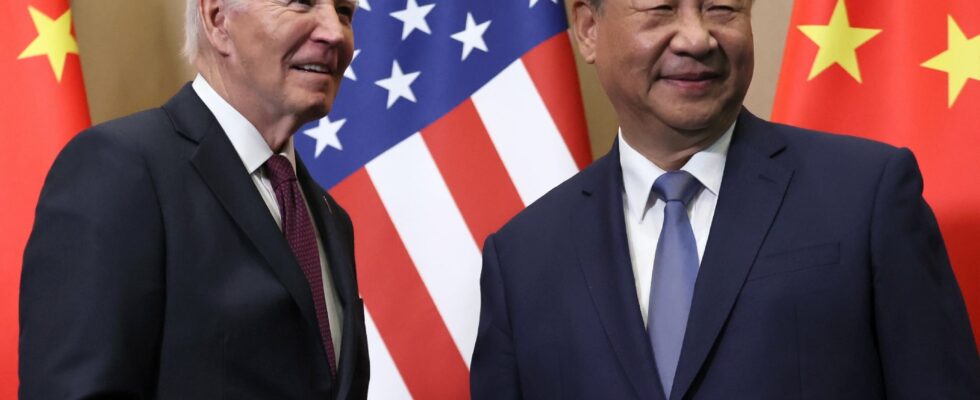Crisis meeting. The leaders of the largest telecommunications companies were summoned to the White House on Friday, November 22. On the agenda: how to expel Chinese hackers from the most hidden corners of the country’s communications networks? This meeting echoes the hacking by Beijing which targeted, among other things, the data of the phones used by the former president and then Republican candidate Donald Trump and his running mate, Ohio senator JD Vance, at the end of the month. ‘october. While the extent of this hacking still remained unclear, American intelligence services discovered new elements, revealed in the American press.
First, the hackers infiltrated the networks of “several telecommunications companies” and stole call recordings of U.S. customers as well as communications of “a limited number of individuals primarily involved in government or political activities “, said the FBI and the US cyber surveillance agency CISA on November 13. The FBI has notified fewer than 150 victims, “but all of these victims likely called or texted many people, which means the number of records accessed by the hackers is likely much larger,” the agency said. American channel CNN.
Democratic Senator Mark Warner, chairman of the Senate Intelligence Committee, did not have strong enough words to describe “the worst telecommunications hack in the history of our country, by far”, in the American daily Washington Post this week. The sixty-year-old speaks of a “staggering sophistication”, while fearing that “the barn door” remains “wide open”.
New information has made it possible to outline the profile of the hackers. These would be members of a group called “Salt Typhoon” and closely linked to the Chinese Ministry of State Security. For more than a year, these individuals had been discreetly roaming the networks of the largest American telecommunications companies, including market leader Verizon. During their research, American intelligence learned that these Chinese hackers had obtained a near-exhaustive list of telephone numbers that the Department of Justice monitors in its “lawful interception” system. These are people who are wiretapped because they are suspected of having committed crimes or acts of espionage, generally after a warrant has been issued.
Access to the list of identified Chinese spies
Although it is unlikely that the Chinese listened to the content of the calls, they were able to have access to the detailed profiles of the individuals monitored (by combining telephone numbers and geolocation elements). But for what purpose? The Middle Kingdom was “certainly” able to know which Chinese spies the United States had identified and which had been missed, respond our American colleagues from New York Times. A major advantage, while the Sino-American rivalry is stronger than ever. More bad news for the American secret services: while they thought the hacking was limited to the Washington area, they discovered evidence of China’s access to the entire country.
In other words, this hack has taken on a whole new dimension: it could go beyond telephone companies and have penetrated all the way to Internet service providers, potentially allowing the Chinese to read certain emails. Small consolation prize: encrypted applications, such as WhatsApp and Signal, have not been penetrated. Same with messages sent within Apple’s own network which were also secure.
A fair spy game
Besides trying to contain these foreign infiltrations, the other objective of this meeting at the White House seemed to be to point out a culprit. Should we blame telecommunications companies, their regulators or American intelligence agencies? And it would be up to telecommunications companies, whose network is aging, to find a solution. “The American communications system is built on a hodgepodge of aging systems, which has made it much easier for the Chinese to break into more than ten telecommunications companies,” summarizes the New York Times. Except that updating this network, parts of which date from the 1970s, is not an easy task and could create painful network outages for consumers.
On the diplomatic side, the hacking further tainted relations between Chinese President Xi Jinping and his American counterpart Joe Biden, who put the subject on the table during their meeting in mid-November in Peru, on the occasion of the Asia-Pacific Economic Cooperation (Apec) summit, bringing together 21 countries. Except that the United States is not in a position to make too heavy criticism of Beijing, since it regularly monitors Chinese telecommunications companies, as the New York Times : “It is a form of espionage considered fair game.” Until China matches or even exceeds American capabilities? Proof that the subject is taken seriously, a confidential meeting of all senators is planned for December 4, after the return of Congress from recess.
